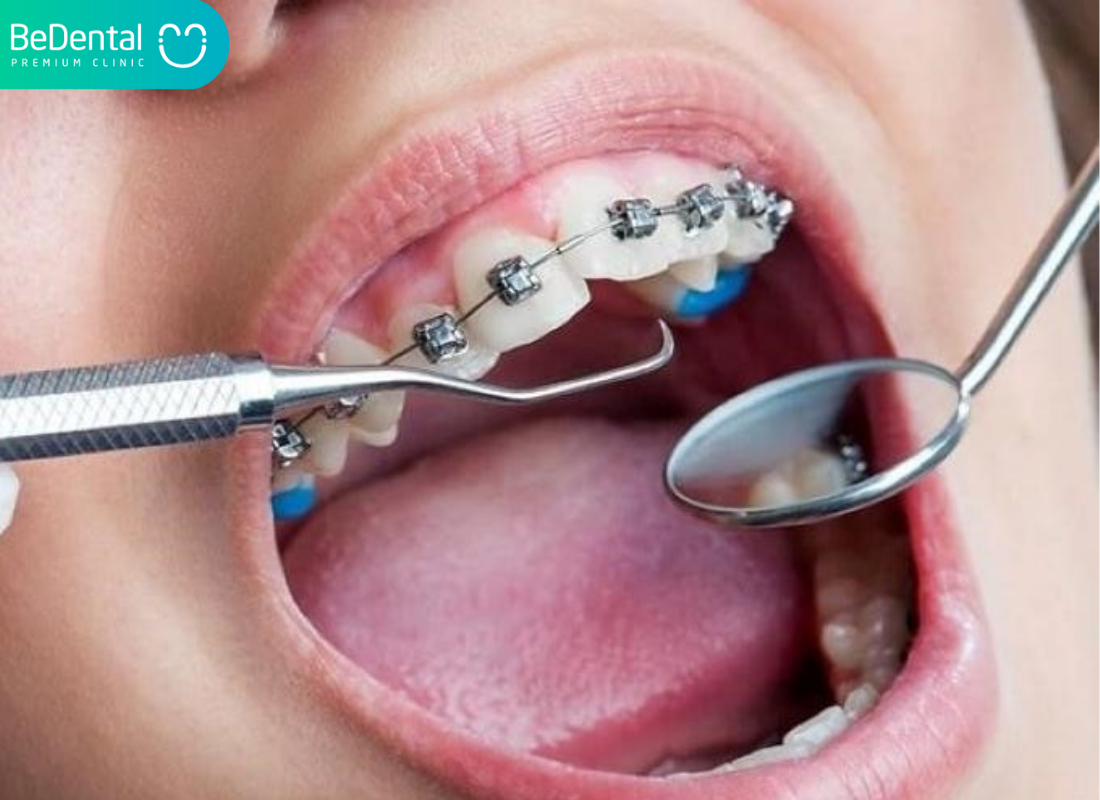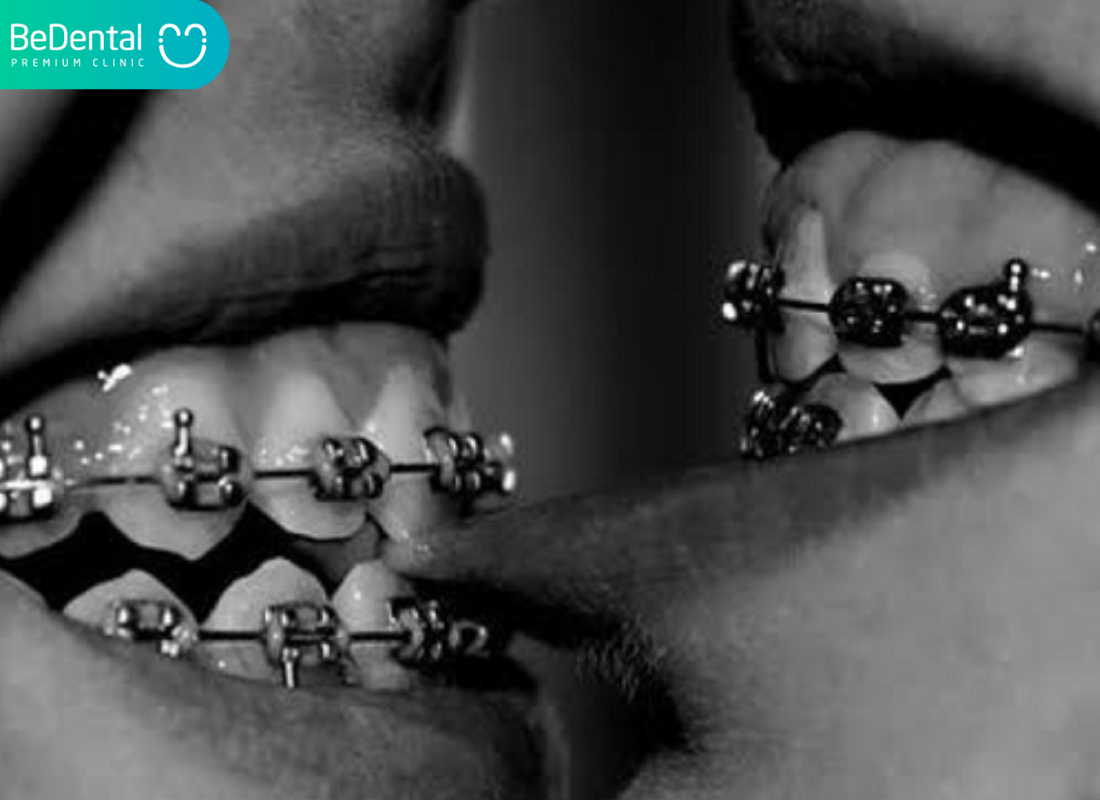Loose teeth in children are a common and often exciting experience, marking an important milestone in their growth and development. However, for adults, a loose tooth can be concerning and may require immediate attention from a dental professional. The underlying causes of loose teeth in adults can range from harmless to serious, necessitating a variety of treatments such as tooth preservation, extraction, or replacement with implants or bridges.
This article aims to provide useful information on the prevention and treatment of loose teeth in adults while highlighting the potential causes that may lead to such dental issues.
Symptoms
A loose tooth can vary in severity, ranging from a slightly wobbly tooth to a severely unstable one. You may notice that the tooth appears to be moving or shifting from the gum line and can be easily moved with your finger or tongue. It’s important to also be aware of other potential signs, such as pain or discomfort, swelling, or bleeding around the affected tooth:
- Red and tender gums
- Swollen gums
- Bleeding gums
Regularly experiencing these symptoms warrants a checkup with your dentist to determine the underlying cause of the issue. While bleeding gums may not always be a serious concern, they can also indicate other health problems, such as a deficiency in certain vitamins. It’s important to address any oral health concerns to maintain healthy teeth and gums
Treatments
The optimal solution depends on the reason for the looseness, although a variety of therapies can be helpful.
Some treatment options include:
- Scaling and root planing: This kind of thorough cleaning method can cure and aid in the reversal of gum disease.
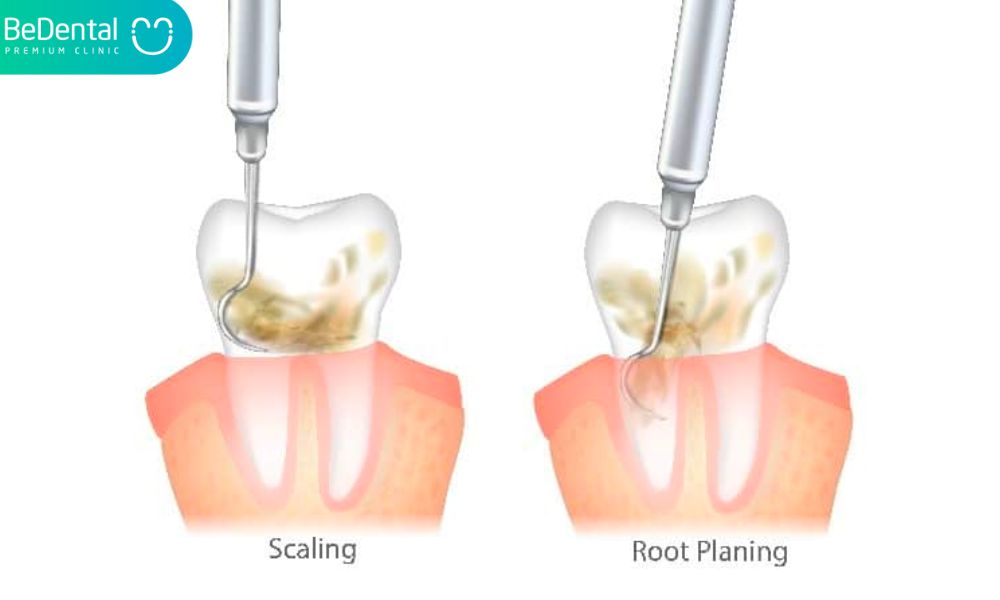
- Medications or mouth rinses: They can aid in the healing of diseased gums and the fight against oral bacteria.
- Surgery: Surgery aims to remove infected gum tissue and bone that has been harmed by gum disease.
- Bone grafts: These can help rebuild bone loss to gum disease.
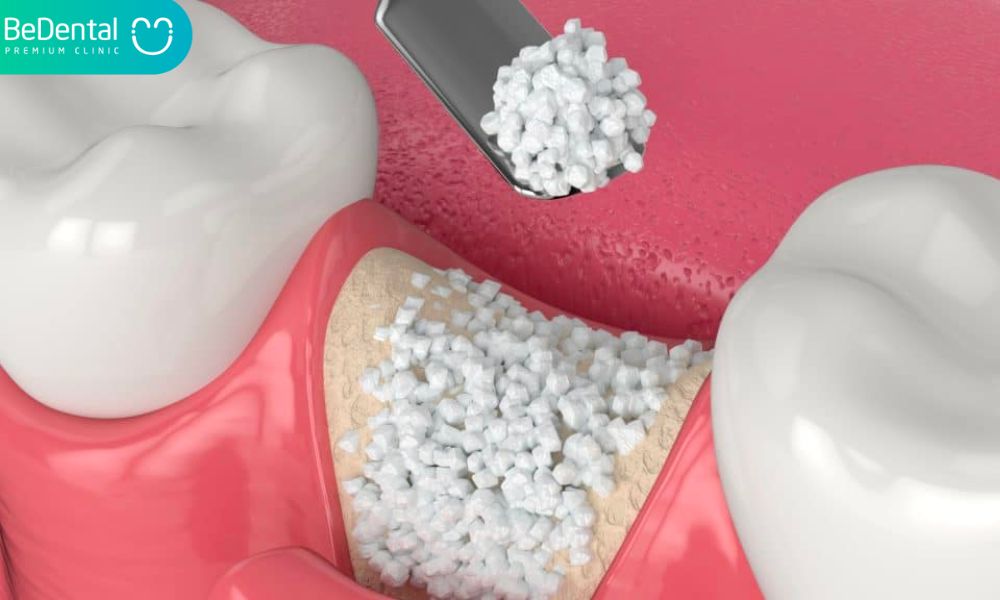
- Soft tissue grafts: Also known as gum grafts, these can prevent further gum or tooth loss in people with gum disease.
- Dental appliances, such as bite splints: These can reduce damage from grinding and may help the mouth heal after dental surgery.
- Treatment for diabetes: Appropriate treatment is important for dental and gum health.
In the event that a loose tooth is lost, a dental professional may recommend the installation of a dental implant or a dental bridge. A dental bridge is essentially a crown that spans across two healthy teeth, with a prosthetic tooth occupying the space left by the missing tooth. The end result is a bridge-like structure that connects the adjacent teeth with the prosthetic tooth, effectively restoring both function and appearance to the mouth.
For those who have lost a tooth, a dental implant offers a solution that involves a prosthetic tooth and root, anchored into the jawbone for stability. While both dental implants and bridges are effective in restoring the appearance and function of the mouth, it is crucial to address the underlying cause of tooth loss and take preventative measures to avoid future damage. By tackling the root cause of the issue and adopting good oral hygiene habits, individuals can better protect their dental health and avoid further tooth loss.
Causes of loose teeth in an adult
Causes of loose teeth in an adult: Gum disease
Gum disease, also known as periodontitis, occurs when the gums become inflamed and infected, often as a result of poor dental hygiene practices. Shockingly, approximately 40% of people experience gum disease, and it is responsible for about 70% of tooth loss cases.
When routine brushing and flossing fail to remove plaque build-up, gum disease can develop. Plaque is composed of bacteria that adhere to teeth and gradually harden over time, requiring intervention from a dental professional to remove it effectively.
When plaque hardens and turns into tartar, it can cause the gums to recede from the teeth and create pockets that can become infected. This process can gradually break down the bone and tissue that support the teeth, ultimately causing them to loosen and become unstable.
Thus, addressing and preventing tartar build-up through proper dental hygiene practices and regular dental check-ups is crucial in maintaining healthy teeth and gums.
Other symptoms of gum disease include:
- gums that are tender, red, painful, or swollen
- gums that bleed during brushing
- gum recession
- changes in the way the teeth fit together
Need to do
If any signs of gum disease are present, seeking prompt dental attention is critical in preventing tooth loss. Early detection and treatment can help to address the issue before it worsens, potentially saving individuals from more extensive and costly treatments down the road.
By staying vigilant about dental health and visiting the dentist regularly, individuals can catch and treat gum disease early, preserving their teeth and overall dental wellbeing.
Causes of loose teeth in an adult: Pregnancy
Hormonal imbalances can have a significant impact on the periodontium, the group of bones and ligaments that support the teeth and keep them securely in place. If the periodontium is affected, it can cause one or more teeth to feel loose. By regulating hormone levels and practicing good dental hygiene, individuals can help protect the periodontium and prevent tooth mobility.
Need to do
Changes to this part of the body typically resolve after pregnancy, and they are not a cause for concern. However, anyone who is experiencing pain or loose teeth during pregnancy should contact a dentist to rule out gum disease and other oral health problems.
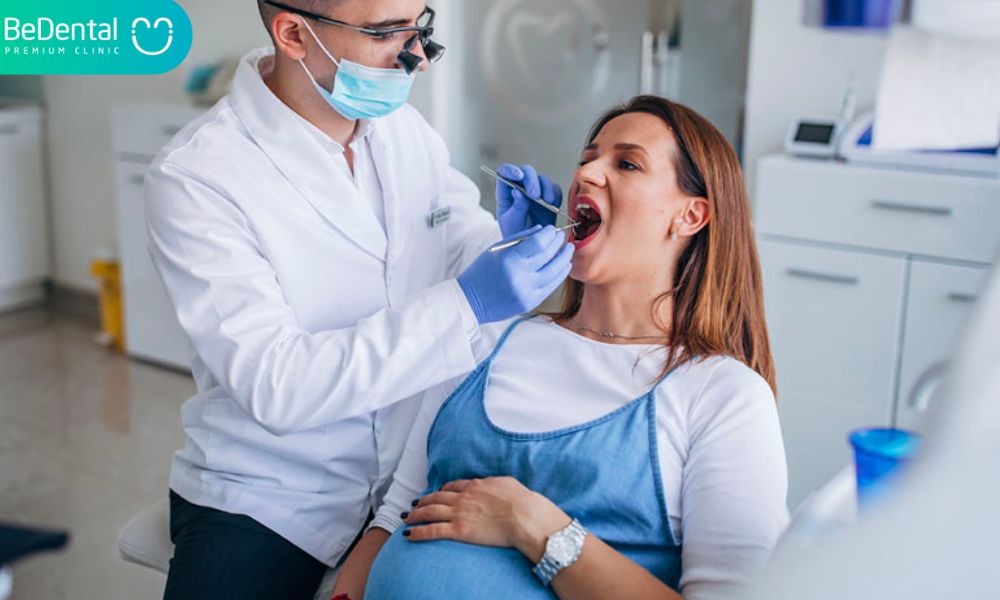
In fact, pregnant women should schedule routine dental visits since there may be a connection between gum disease and preterm delivery.
Causes of loose teeth in an adult: Injury to the teeth
Even though teeth are naturally sturdy, accidents like a facial impact or car collision can cause significant damage to both the teeth and the surrounding tissues, leading to chipped or loose teeth. Additionally, stress-induced habits like teeth clenching or nighttime grinding can wear down the tissues over time and eventually loosen the teeth. Often, individuals are unaware of these habits until they experience jaw pain. However, a dentist can detect these problems early on and prevent any further damage to the teeth and gums.
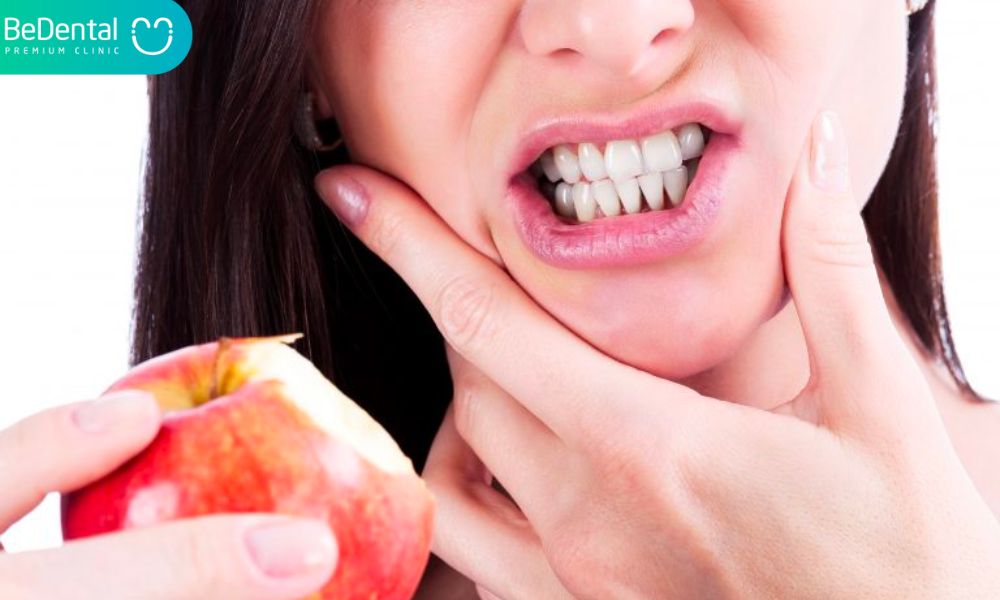
Need to do
In the event of a potential dental injury, seeking professional dental care as soon as possible is crucial. Accidents such as sports injuries, falls, or other traumas can all result in dental damage. By seeking prompt treatment, individuals can receive proper care to help prevent further complications and ensure their teeth and oral health are protected.
Causes of loose teeth in children
As children grow, they start losing their baby teeth. This process usually starts around age 6 when their incisors, or middle teeth, become loose. Over the next few years, they will continue to lose their other teeth, with their back molars typically falling out around ages 10-12. By age 13, their permanent teeth will have replaced all of their baby teeth.
Children often try to wiggle their loose teeth to speed up the process, but sometimes a primary tooth may not come out on its own. In that case, your child’s dentist may recommend removing it.
It’s important to note that if a child loses a baby tooth too early due to decay or an accident, it may cause issues with the eruption of their permanent teeth. If this happens, your child’s dentist can provide guidance on the next steps.
Prevention
To maintain healthy gums and prevent loose teeth, it’s crucial to establish a proper oral care routine. Plaque buildup on teeth and gum lines can be a significant contributor to the problem. If left untreated, it can lead to gingivitis and gum disease, which can cause tooth loss. To avoid plaque buildup, it’s essential to:
- Floss once a day
- Brush your teeth two times a day
- But remember to not brush your teeth and gums too hard: pressing down the toothbrush while brushing could cause a loose tooth to get worse.
After determining the cause of a loose tooth, your dentist can begin appropriate treatment. If the cause is gum disease, a scaling and root planing procedure may be necessary to address underlying gum issues. In severe cases, surgery may be an option, which can include:
- Flap surgery. In severe cases of gum disease, your dentist may recommend a more aggressive treatment such as scaling and root planing combined with gum surgery. This procedure involves making incisions in the gums to allow for a deep cleaning of the roots of your teeth. After the cleaning, the gum tissue is reattached to the teeth for proper healing.
- Bone grafting. If your loose teeth are caused by bone deterioration, your doctor may suggest bone grafting to repair the damaged bone in your mouth. This can be done by taking bone fragments from another area of your body or using a special bone grafting material to promote the growth of new bone tissue, which can help support your teeth.
- Splinting. In some cases where the loose tooth has not completely detached from the gums, your dentist may use a splint to help save the tooth. This involves bonding a small piece of metal to two adjacent teeth, which provides additional support to the loose tooth and prevents it from moving further.
- Mouth guard. To alleviate the effects of teeth grinding, you can use a custom-fitted night guard to protect your teeth while you sleep. This helps to prevent any further damage to your teeth and also reduces the pressure on your jaw.
Who Treats Loose Teeth?
Who Treats Loose Teeth? Loose teeth can be caused by a variety of factors, and it’s important to get a proper diagnosis from your dentist to determine the cause and appropriate treatment. Regular dental check-ups and cleanings can help prevent loose teeth, as your dentist can identify and treat any potential issues early on. In addition to treating existing problems, your dentist can also provide guidance on how to maintain good oral hygiene, including proper brushing and flossing techniques.
If necessary, your dentist may refer you to a specialist such as a periodontist. Taking care of your oral health is an important part of maintaining overall health, so be sure to schedule regular check-ups and follow your dentist’s recommendations for preventative care. To find a dental office in your area, visit our locations page.
More
In-Office Teeth Whitening and 5 Steps To A Bright Smile
Scaling and Polishing – Deep Oral Cleaning and 5 Habits To Keep Teeth Healthy
Tooth extraction and 7 common concerns
Root canal treatment: 5 things that you wonder about
Over-the-counter teeth whitening and 7 common questions



